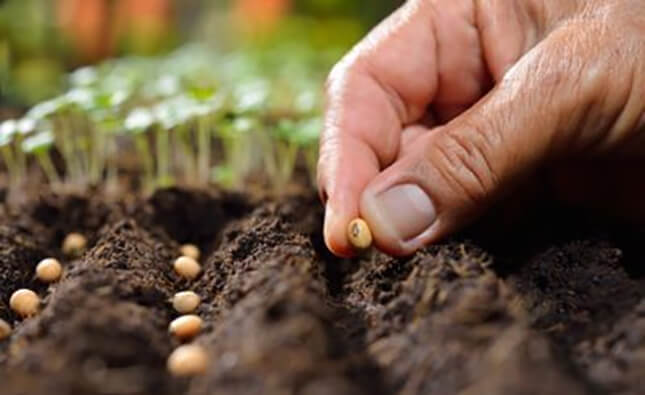
The Pali word that is most often translated to “cultivate” (also develop, produce, call into existence) is bhavana also often translated as “meditation”. We often overlook what bhavana can mean in the broader sense. In gardening, to cultivate can refer to the whole process of gardening, from preparing the soil, removing weeds, planting seeds, watering, tending, really everything in the process up to the eventual harvest that one hopes for.
The mind/body can also be developed and cultivated in many ways that lead to the reduction of stress and discontent, and lead toward a sense of ease and peace and contentment. The Buddha exhorts his followers to cultivate wholesome states and practices in many of the discourses. My understanding of this encouragement is that we are to cultivate the soil of our minds and bodies much the same way a gardener cultivates the soil of a garden. There are many ways to do this: Bodily we can nourish and support the body in ways that encourage health and vigor in our practice. Things like exercise, good diet, not using or ingesting things that could harm the body, not overdoing practices that are otherwise healthy (too much exercise leading to injury, too few calories, etc.) can all support one’s efforts on the path. Less apparent is that the non-harming of the body, and supporting a healthy lifestyle can itself be a Dhamma practice, if done mindfully. We can notice the mind/body’s response when we do things with the body that are wholesome or uwholesome and see the direct result of such actions, or even the result of the intention behind such actions.
As to the cultivating of conditions for a mind that inclines toward liberation, ethical behavior (non-harming) is the foundational “soil” yielding a mind that is free of regret and tends toward the states referred to as the Brahma Viharas (loving kindness, compassion, appreciative joy and equanimity). Meditation, mindfulness when not formally meditating, associating with people who are also actively practicing Dhamma, study (especially with a teacher), contemplating Dhamma, are all tools to cultivate the garden of the mind, thereby removing kilesas (defilements or “weeds”) like anger, ill will, worldly desire, delusion, etc. and nurturing the growth of the wholesome seeds that we have planted. Eventually this continued cultivation will yield results, the fruit of the path; peace, contentment, calm, ease, and eventually, a fully liberated mind.
It is important that while all of these tools (and others besides) support the process of liberation, and are some of the conditions for liberation, it is helpful to think of them as conditions that supportive rather than causes that lead directly to a defined result. My experience is that when considered in this way, I don’t have quite as much invested in a specific outcome. This allows for a more relaxed and open approach as to how the path and process unfold.
In any case, may your garden be fruitful and abundant and free of weeds!
By Mark Wiesman
MOI Teacher
